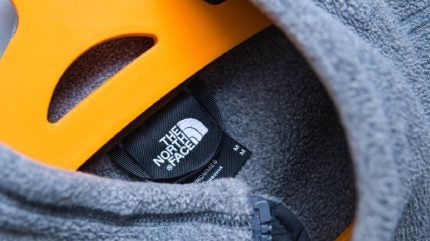
A report from Türkiye Today claims The North Face has shifted 80% of its production as a result of escalating costs in Türkiye. These costs have reportedly doubled compared to those of competitors in the Far East.
Gelisim Tekstil, previously The North Face’s second-largest global producer and its largest within the EU, is allegedly preparing to see a drastic reduction in business.

Discover B2B Marketing That Performs
Combine business intelligence and editorial excellence to reach engaged professionals across 36 leading media platforms.
The company will now only get orders valued between €4m ($4.6m) and €5m from The North Face, down from approximately €30m, according to local media reports.
Gelisim Tekstil board of directors chairman Mustafa Akcay was quoted as saying to the news publication: “Our biggest customer was VF Corporation. We produce for globally recognised brands like The North Face, Vans, Timberland, Dickies, Supreme, Eastpak, JanSport, Napapijri, Smartwool, Icebreaker, Kipling and Altra.
“We were The North Face’s second-largest producer globally and largest in the EU. Starting last year, they decided to go to Bangladesh and Vietnam. About 10%-20% of production will remain.”
The North Face’s parent company VF Corporation declined to comment when approached by Just Style.

US Tariffs are shifting - will you react or anticipate?
Don’t let policy changes catch you off guard. Stay proactive with real-time data and expert analysis.
By GlobalDataHowever, local reports suggest the cutback in orders could potentially halve Gelisim’s workforce, which currently stands at 1,200 employees across several facilities.
The Corlu factory, established with a €35m investment in 2023, is said to employ 300 workers.
The company is also said to employ 350 staff members at the Adiyaman plant and 500 individuals at the Istanbul facility.
Additionally, the company has 60 workers engaged in the education and energy sectors.
“We currently have 1,200 employees. If things don’t go as we hope, there may be employees we will part ways with. We will shrink. Starting from May next year, the number of employees may drop by half,” Akcay told the local news publication.
The company’s monthly capacity utilisation is also said to have plummeted from 1m pieces in 2022 to just 400,000-500,000 pieces currently.
The disparity in production costs has escalated sharply over the last three years, according to Akcay.
He suggests there has been a 302% surge in the minimum wage in Türkiye and inflation has climbed by 290%.
This comes despite the growth of the US dollar’s value by only 132%.
Consequently, he claims the company’s expenses, when calculated in dollar terms, have more than doubled.
Domestic costs have surged over the past three years, with minimum wage and inflation increases significantly outpacing the rise in the dollar exchange rate.
Akcay said: “In 2023, labour costs rose 110% while the exchange rate increased 50%. We tolerated the difference in yarn prices. But in subsequent years, labour costs remained well above the exchange rate, making us more expensive than even the EU.”
Earlier this year, data from the Turkish Exporters Assembly (TIM) revealed that Türkiye’s textile and raw materials sector exports saw a marginal decline of 0.6% to $9.5bn in 2024.
Ready-to-wear exports decreased by 6.9% to $17.9bn, while leather exports fell by 17.9% to $1.5bn.





